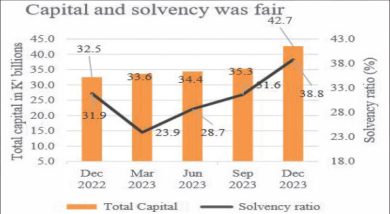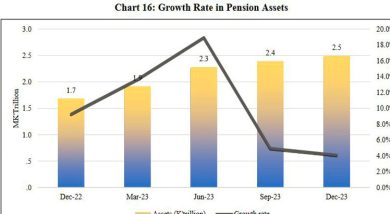Ganging up against vat on cooking oil
Mekilina Mtalimanja, 36, survives on selling cooking oil at the populous Nsungwi market in the densely populated Area 25 in Lilongwe.
Thrice a week, Mtalimanja, a widow of 4 children, buys a gallon of cooking oil before packaging the commodity into ‘tiny’ plastic tubes.The tubes go at K100 and the smaller tube is sold at K50.

Since losing her husband-who died during a tragic accident at around Lisasadzi in Kasungu district in 2016, life has been unbearable for her and her children but she has been finding solace in cooking oil business since then.She has no any other source of income apart from this lifeline for her.
On Tuesday, however, Mtalimanja wore a gloomy face when she got ‘shocking’ news that her livelihood could be hanging by a thread, should parliament pass a 2020/21 budget which has proposed a standard Value 16.5 Added Tax on cooking oil.
This reporter thoroughly explained to her possible implications of such a tax measure as also feared by several other gurus in the cooking oil business let alone consumer rights activists and other experts.

“Okapanga choncho wo Chakwera ndeku otilakwira zedi.Ndithudi otipweteka [If Chakwera government goes ahead to implement such a tax measure, that will spell doom to our business.We will be squeezed out of this business for sure,” she complained in a typical and deep chewa toungue.
As if it is by design, Mtalimanja echoes a similar general outcry by five cooking oil manufacturing companies that have currently ganged up against a decision by Capital Hill to re-introduce Vat on cooking oil.
Listening the arguments and fears by the five companies, one would quickly conclude that the companies would bay for Finance Minister Felix Mlusu’s blood, should he go ahead to re-introduce such a tax measure as a bone of contention.
On the flipside though, their grievances have been dismissed by tax experts we spoke to, who dub cooking oil companies as ‘cry babies,’ arguing if anything, the new Vat imposition on cooking oil stands to benefit the companies themselves.
In fact the tax experts say cooking oil prices should start decreasing and not to the contrary.
Jointly, the protesting cooking oil producers that have ganged up against the new tax measure include Capital Oil Refining Industries Limited, Sunseed Oil Limited, Agri Value Chain Limited, Mount Meru Petroleum Limited, and MOTI Oils Mills Limited.
Together, they operate under an umbrella body called Edible Cooking Oil Association of Malawi (Ecoam).
A Short-live relief:
Ecoam members and all Malawians in general have been enjoying an Vat exemption on cooking oil which was granted in the year 2017.Three year later, that relief could be short-lived, if Mlusu puts his foot down on the proposed measure.
It took very long and a combined aggressive efforts by Ecoam members and other experts to convince the then Minister of Finance, Economic Planning and Development Goodall Gondwe who later succumbed to pressure before announcing an exemption from Vat on cooking oil. The relief was granted in August 2017.
Gondwe gave a rationale to such an exemption: “…to check on smuggling and to protect local industries, we are proposing exempting cooking oil from Vat.”
To cooking oil companies, that was a very positive development for both the cooking oil industry and general population of Malawi, as it meant that every Malawian would be able to afford good quality cooking oil, they argued.
Records show that since 2017 when the Vat on cooking oil was scrapped off, the cooking oil sector flourished, buoyed and this is evidenced by the growth in revenue from oil sales achieved by the cooking oil manufacturers from the past three years.
Business Review is privy to figures by some of the cooking oil firms which show that some of the manufacturers managed to double their revenues since the exemption of Vat in 2017. This, in turn, paved way for generation of strong revenue to the nation in terms of corporate taxes.
As a multiplier effect,such a revenue growth allowed major expansions within the industry that has today led to massive production of crude Soyabean oil which is made from crushing locally grown soyabeans.Such a chain had given a big push to soyabeans farmers.
Soyabean is one of Malawi’s leading alternative cash crops to tobacco—currently the country’s major export commodity-but is facing massive backlash by anti-smoking lobbyists hence experiencing a diminishing demand on the international market.
Thanks to the Vat exemption, demand for cooking oil peaked up the same year in 2017 while Soyabean output, which was estimated at 125,000 Metric Ton (MT) in 2017 has also been steadily growing to hit 250,000 MT this year, according to statistics by the Department of Agricultural Research Services.
Besides, Vat exemption saw a further boost to edible oil seed processing, thereby allowing the poultry sector to grow due to better-priced products such as animal feed meal.
Hard-earned gains on verge of wiping out:
Mtalimanja, just like many other small-scale cooking oil traders we randomly spoke to this week in various markets in the outskirts of Lilongwe city, agree that beginning towards the year 2017, their commodity started to fetch huge turnover as demand swelled up due to relatively then lower prices, thanks to high volumes of cooking oil
from companies that flooded the markets.
Today, cooking oil traders, cooking oil companies and Soyabeans growers are dismayed with the imminent reversal in policy direction by the new government.
“This proposal will neither make the industry more competitive, nor protected. The edible oil manufacturers were struggling for years until 2017, to compete because of unscrupulous business man importing sub-standard cooking oil through grey markets via porous borders,” warns Ecoam, in a letter addressed to Mlusu dated September 14, 2020.
The Vat, argues Ecoam, will not only make local refined cooking oil unaffordable but also open the floodgates for smuggled cooking oil making Malawi a dumping ground, thereby defeating the purpose of being productive and exporting.
Without mincing words, Ecoam retorts that the tax measure is a backward step and that it will definitely dent the “Buy Malawi” agenda as end users will again divert to cheaper sub-standard oil, profiting the neighboring countries and adding no value to our country.
“Some consumers are poor and others ultra-poor who needs to be supported in order to successfully improve the national nutrition outcomes and facilitate the acceleration of nutrition interventions, which are the very measures, put by government.”
Business Review understands that of all the cooking oil produced in Malawi, 75 percent is consumed in rural areas while the urban consumes the remaining 25 percent.
Both Consumers Association of Malawi (Cama) and an Audit firm EY also urge Treasury to engage all manufacturers on the proposed Vat, fearing that the move could see an increase in the price of the product on the market.
In short, it is feared that the re-introduction of Vat will imply that the price of cooking oil will have to increase now on the local market, thereby triggering huge smuggling of refined cooking oil from Mozambique, Zambia and Zimbabwe into the country through the long stretch of porous border that cannot easily be policed by Malawi.
But a Blantyre-based tax expert Emmanuel Kaluluma thinks both Ecoam, Cama and EY and other people such as Mtalimanja have no basis to keep complaining and fearing the unknown.
Said Kaluluma on Tuesday: “I think what is at stake ignorance of product costing or profiteering by businesses.They [cooking oil companies] now have an opportunity to claim input Vat which before this change it was not possible. In fact the new law is now favouring them. They have no case.”
Sounding adamant too, Treasury, through its spokesperson Williams Banda, argued recently that with the re-introduction of the standard Vat rate on refined cooking oil, local manufacturers will now be entitled to claim input Vat paid on inputs or raw materials with
respect to the production of refined cooking oil.
Banda also said currently, local manufacturers of refined cooking oil continue to benefit from the Industrial Rebate Scheme where raw materials are imported without payment of duty and only Vat is applicable.
His boss, Mlusu, told parliament when presenting the 2020/21 budget that under the Surcharge Tariff regime, the local manufacturers of cooking oil are protected from adverse competition. He said arbitrary price increases especially by local manufacturers reflecting the full Vat adjustment on the refined cooking oil is not expected.





